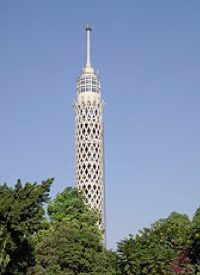
This past Wednesday as Egyptian society slowly returned to normality, the ruling Supreme Council of the Armed Forces appointed Tareq al-Bishry, a retired judge, to head the Constitutional Amendment Committee authorized to redraft six articles of the constitution within a period of 10 days.
Following the overthrow of President Hosni Mubarak and the rise of the military council, the Egyptian constitution was suspended and no longer expected to be Egypt’s law of the land, as many of its provisions and articles over the past two decades have been designed to solidify power in the hands of Mubarak and make it much more difficult for opposition candidates to run for office — not to mention win the presidency.
The following are the six articles of the constitution that are expected to be redrafted:
Art.76: The People’s Assembly shall nominate the President of the Republic. The nomination shall be referred to the people for a plebiscite. The nomination for the President of the Republic shall be made in the People’ Assembly upon the proposal of at least one third of its members. The candidate who obtains two thirds of the votes of the members of the People’s Assembly shall be referred to the people for a plebiscite. If he does not obtain the said majority the nomination process shall be repeated two days after the first vote. The candidate obtaining an absolute majority of the votes of the Assembly members shall be referred to the citizens for a plebiscite. The candidate shall be considered President of the Republic when he obtains an absolute majority of votes cast in the plebiscite. If the candidate does not obtain this majority, the Assembly shall propose the nomination of another candidate and the same procedure shall follow concerning his candidature and election.
Art.77: The term of the presidency shall be six Gregorian years starting from the date of the announcement of result of the plebiscite. The President of the Republic may be re-elected for other successive terms.
Art.88: The Law shall determine the conditions which members of the Assembly must fulfil as well as the rules of election and referendum, while the ballot shall be conducted under the supervision of the members of a judiciary organ.
Art.93: The People’s Assembly shall be competent to decide upon the validity of the membership of its members. The Court of Cassation shall be competent to investigate the validity of contestations on membership presented to the Assembly after referring them to the Court by the Speaker of the Assembly. The contestation shall be referred to the Court of Cassation within fifteen days as from the date on which the Assembly has been informed thereof while the investigation shall be completed within ninety days from the date on which the contestation is referred to the Court of Cassation. The result of the investigation and the decision reached by the Court shall be submitted to the Assembly to decide upon the validity of the contestation within sixty days from the date of submission of the result of the investigation to the Assembly. Memberships shall not be deemed invalid except by a decision taken by a majority of two-thirds of the Assembly members.
Art.179: The Socialist Public Prosecutor shall be responsible for taking the measures which secure the people’s rights, the safety of the society and its political regime, the preservation of the socialist achievements and commitment to socialist behaviour. The law shall prescribe his other competences. He shall be subject to the control of the People’s Assembly in accordance with what is prescribed by law.
Art.189: The President of the Republic as well as the People’s Assembly may request the amendment of one or more of the articles of the Constitution. The articles to be amended and the reasons justifying such amendments shall be mentioned in the request for amendment. If the request emanates from the People’s Assembly, it should be signed by at least one third of the Assembly members. In all cases, the Assembly shall discuss the amendment in principle, and the decision in this respect shall be taken by the majority of its members. If the request is rejected, the amendment of the same particular articles may not be requested again before the expiration of one year from the date of such rejection. If the People’s Assembly approves an amendment, in principle, the articles requested to be amended shall be discussed two months after the date of the said approval. If the amendment is approved by two thirds of the members of the Assembly, it shall be referred to the people for a plebiscite. If it is approved by the people it shall be considered in force from the date of the announcement of the result of the plebiscite.
The suspension of the constitution was one of the principal demands made by the protestors. Now as their demands are being satisfied, those six articles that balanced power in favor of Mubarak are expected to be scuttled in favor of a freer, more democratic constitution that will make easier for multiple parties to run for office without any of the Mubarak-era restrictions.
Hisham al-Bastawisy, “a top judiciary official who said he spent the last few years in Kuwait because Egypt’s security services harassed him and put him under surveillance,” according to Reuters, is reported to have said, “The current constitution is dead and nothing should be used from it.”
Among some of the changes expected to be made is the addition of presidential term limits, in order to avoid another 30-year rule such as Mubarak’s. In addition to limiting the duration of office for the highest office in government, other measures to curtail the powers of the president are being considered. Thus, the next president will not have anywhere near the unlimited powers enjoyed by former President Mubarak.
After the proposed changes are made, resulting in essentially a new constitution, it will be brought to a referendum within three months where voters will determine its fate.
Until then the military leaders will have to either prove themselves on the side of the people, or risk a civil war with the protestors and face the possible fate of Hosni Mubarak.
Although those in the highest ranks of the military are said to have been close to Mubarak, no signs have emerged of any personal ambitions on the part of the military. For now it seems to be performing its interim duties of transitional government, restoring order and the rule of law, while ensuring that basic government services and infrastructure continue to operate effectively.
Among those selected to serve on the Constitutional Amendment Committee is Muslim Brotherhood member Sobhi Saleh, who told reporters of the amendment process: “The job of the committee right now is to constitutionally deal with the demands of the revolutionaries.”
As to what Saleh meant by that, it will have to wait until the first draft of the constitution is made public at the end of next week, although the real refit of the constitution is not expected to occur until the election of the next civilian government in September.
The riots may have ended and the demands of the protestors may be satisfied for the most part; however, it will not be until after the September elections that the results of the Egyptian Revolution will be known: what kind of Egypt has been created — whether for better or for worse.
Photo: Cairo Tower




